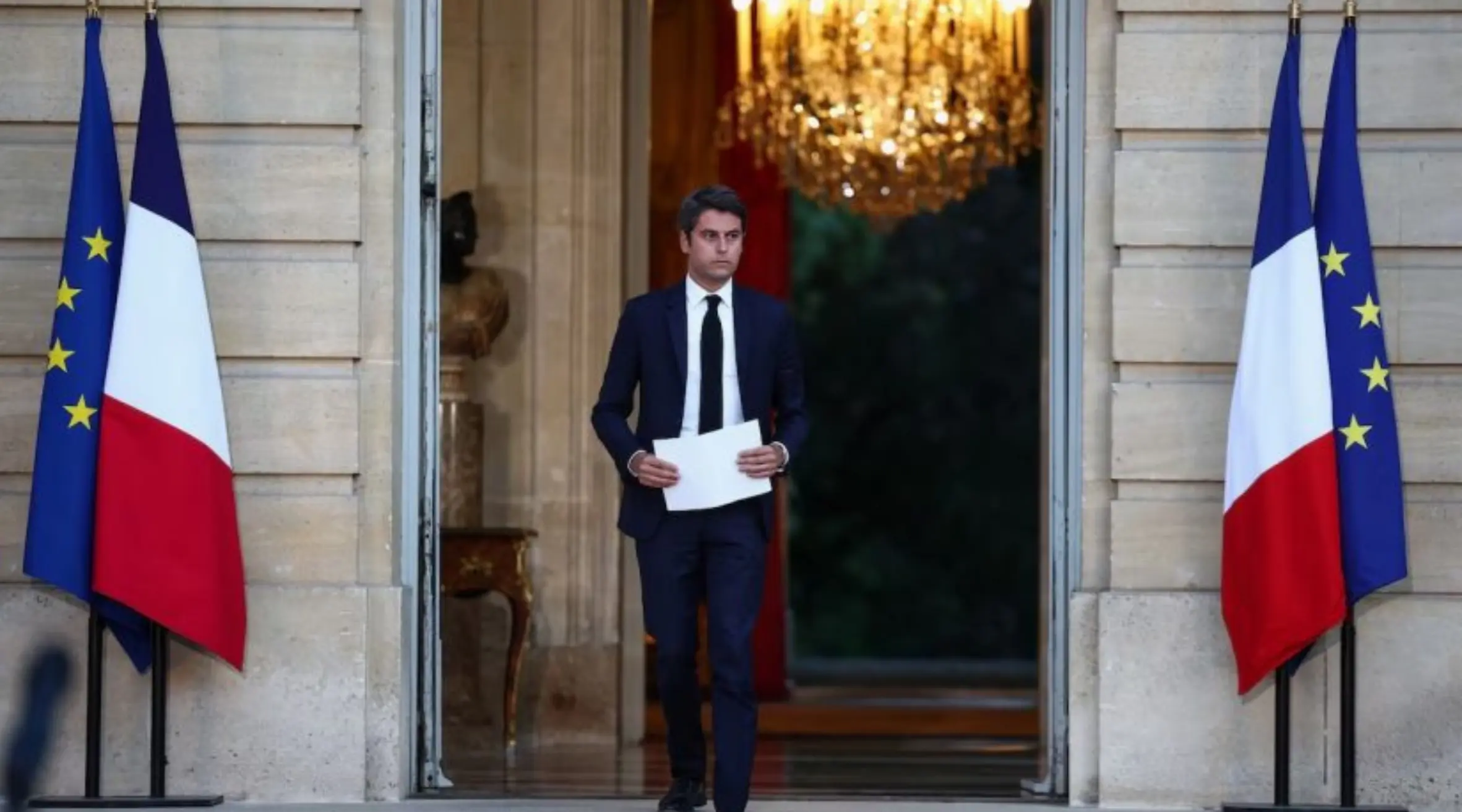France (Washington Insider Magazine) – French voters divided the legislature among the left, center, and far right in Sunday’s election, leaving no group close to a majority needed to form a government. This outcome raises concerns of potential paralysis for France, the European Union’s second-largest economy.
Macron’s Election Gamble Falls Short
President Emmanuel Macron’s decision to call snap elections was intended to provide a “moment of clarification” for France. However, the results indicate a more complex political landscape, just weeks before the Paris Olympics. The French stock market experienced a brief drop at the opening but quickly rebounded, possibly due to relief that neither the far right nor the leftist coalition achieved an outright victory.
Prime Minister Stays for Stability
According to APnews, Prime Minister Gabriel Attal, who had indicated a willingness to stay if needed, resigned on Monday. Macron, who appointed him seven months ago, immediately requested that Attal remain in office to “ensure the stability of the country.” The meeting at the presidential palace included Macron’s top political allies and concluded after about 90 minutes.
Diverging Views on Election Call
Attal had previously expressed disagreement with Macron’s decision to hold surprise elections. The results of two voting rounds left no clear path to government formation for the leading leftist coalition, Macron’s centrist alliance, or the far right. Newly elected and returning lawmakers are set to convene at the National Assembly for negotiations.
Implications for Global Diplomacy and Economy
Macron’s midweek departure for a NATO summit in Washington highlights the broader implications of the political deadlock, including its potential impact on the war in Ukraine, global diplomacy, and Europe’s economic stability. Prime Minister Donald Tusk of Poland commented on the mixed reactions across Europe, noting relief in Kyiv and disappointment in Moscow.
Election Results Breakdown
Official results released early Monday show that all three main blocs fell short of the 289 seats needed to control the 577-seat National Assembly. The New Popular Front leftist coalition secured over 180 seats, Macron’s centrist alliance obtained more than 160 seats, and Marine Le Pen’s far-right National Rally garnered over 140 seats, surpassing its previous best of 89 seats in 2022.
Public Reaction and Political Maneuvering
Macron, with three years left in his presidential term, faced significant voter backlash on issues like inflation, crime, immigration, and his governing style. The New Popular Front quickly demanded the first opportunity to form a government and propose a prime minister, pledging to reverse many of Macron’s reforms and increase public spending. However, internal disagreements within the leftist coalition pose a threat to forming a stable government.
A New Political Landscape for France
The political agreement between the left and center to block the National Rally was largely effective, with many voters prioritizing keeping the far right out of power. This dynamic reflects France’s lack of experience with coalition governments and its highly centralized decision-making process in Paris, unlike other European countries.
Campaign Marred by Tensions
The election campaign was marked by instances of racism, antisemitism, and Russian disinformation efforts, with over 50 candidates reporting physical attacks, an unusual occurrence in France. Despite the challenges, National Rally leader Marine Le Pen views the elections as setting the stage for future victories, eyeing a potential fourth run for the French presidency in 2027.


























